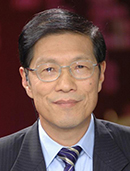The current US ambassador to China, Gary Locke, is set to depart from the post in January 2014, and foreign news agencies have reported that President Barack Obama will likely nominate Senator Max Baucus, also the chairman of the Senate Finance Committee, to be his next envoy to China. If this is true and no change happens, it should be a positive move for the China-US relations. There should be no doubt that his nomination will be approved by the Capitol Hill, and Baucus would be a good pick for the post of US ambassador to China.
Baucus is from Montana, a central-western state. Although Montana is fairly big in size, ranking fourth among all 50 states, it only has a population of less than 1 million. It is a major producer of barley, wheat and beet and is among the top few states in terms of cattle and sheep stocks, and is a typical agricultural state. The state is relatively small in population, but it has cultivated some well-known politicians. The late Mike Mansfield, who served as a senator for a long time and US ambassador to Japan, was one of such politicians. Max Baucus is also a veteran politician. He has been serving as a senator since 1978, and the chairman of the Senate Finance Committee since 2007, and before serving as the chairman, he was a senior member of the committee for six years. In nominating the veteran politician to be the next ambassador to China, it reflects the importance Obama places on advancing relationship with Beijing.
Max Baucus has been supporting to improve relations with China by using his post, activities and voting right in the Senate, in particular, supporting to develop and improve economic and trade relations with China. In the early 1990s after the end of the Cold War, some US political figures became arrogant, believing that the United States, as the only superpower, could achieve whatever it wanted, and that it would make no difference without China or without good relations with China. They showed their utmost dissatisfaction with China’s human rights record, and raised, time and again, the issue of the most-favored nation trade status for China in the Congress and wanted to terminate the MFN trade status for China. During that period, whether or not to extend the MFN trade status to China became a hot issue among the US political arena. Baucus was firm in supporting to grant the trade status to China, and believed that terminating the MFN status for China would be a wrong approach. He argued that the United States should adopt a policy that “constructively encourages China to implement reforms,” and that termination of the MFN status was an empty and useless expression of the angry sentiment. He also believed that unilateral ending of the MFN trade status would do more harm to the United States than to China, particularly, when “no other countries will follow our precedent and we will have to act alone.” In the entire 1990s, he had always been a supporter to give the MFN trade status to China.
China and the United States, after rounds of talks, finally reached agreement on China’s entry into the World Trade Organization at the end of 1999. In order to put the agreement into effect, the United States needed a special legislation to ensure mutual Permanent Normal Trade Relations (PNTR). This legislation was an important event in the political life of the United States in 2000, and was also one of the two important legislations involving foreign economy and trade during the two terms of office of Bill Clinton. The pros and cons of this legislation had heated debates in the Congress. In the Senate, Baucus was a leader of the pros group and was also a major proponent of this legislation among the Democrats. During the debates, he warned that disapproval of PNTR for China would cause a series of grave consequences, because China would consider the US policy as to isolate China, obstruct China’s development and progress and block its road to become a big power. The United States, he said, should not expect fundamental changes in China to happen overnight, and the United States should do its best to reinforce the reformers. At that time, some senators even wanted to make this legislation a big basket and put some issues irrelevant to economy and trade into the PNTR basket, and some even proposed to make the China’s arms nonproliferation bill as an amendment to the PNTR bill. Baucus aired his strong opposition to this proposal. Baucus pointed out that the United States already had a legal system on the nonproliferation of missiles and weapons of mass destruction, and this amendment was unnecessary. Furthermore, such an amendment would hamper the initiative of the president in the future and restrain the flexibility of the president in resorting to the leverage of sanctions to coerce arms proliferating nations to change. He argued: it has proven in the past two decades that unilateral sanctions do not work … It does little harm to China, but will seriously damage important American economic interests, and it only brings significant benefits to Europe and Japan. Furthermore, if the United States loses out in this market, it will be extremely difficult to win back the market again. After heated debates, the legislation to grant PNTR to China was finally adopted, with the yea votes as high as 83 in the Senate. The passage of this legislation cleared the last hurdle for China’s accession into the World Trade Organization.
It can be seen from the facts mentioned above that Baucus is well-versed in finance and economy. By nominating him to be the next ambassador to China, just like choosing Gary Locke several years ago, Obama intends to strengthen bilateral economic and trade relations, to increase the shares of US commodities in the Chinese market and to attract more investment from China. Naturally, as an ambassador, Baucus will have to deal with all issues in relations between the two nations. He is familiar with and knows well about China and the China-US relations, and he is personally involved in US policy on China. He has visited China eight times, and maintains extensive contacts with the Chinese political and business circles. He has served in the Senator for more than 30 years and has established extensive relations in the US political arena. All these will help him better perform the ambassadorship in China. In a word, Baucus is an appropriate choice for the post of US ambassador to China.
No doubt, he represents the US interests. It was natural for him to criticize China on some issues relating to bilateral economic and trade interests, and he also supported some anti-dumping and anti-subsidy bills against China. It shouldn’t be difficult to understand. It is hoped that after assuming the ambassadorship, he will have a better understanding of China and the China-US relations, and will make contributions in building the new type of big-country relations between China and the United States.
Tao Wenzhao is a Researcher for the Institute of American Studies at the ChineseAcademy of Social Sciences.

